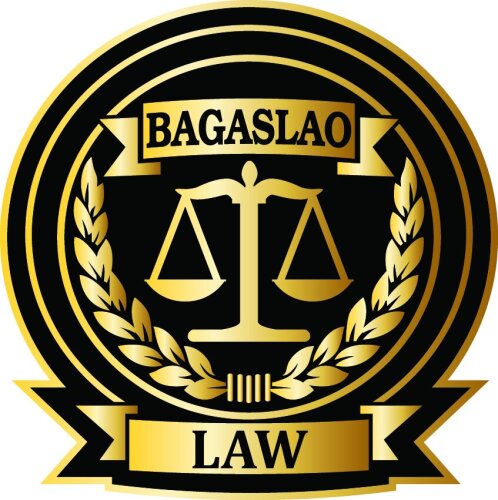Best Housing, Construction & Development Lawyers in Whitehorse
Share your needs with us, get contacted by law firms.
Free. Takes 2 min.
Free Guide to Hiring a Real Estate Lawyer
List of the best lawyers in Whitehorse, Canada
About Housing, Construction & Development Law in Whitehorse, Canada
Whitehorse, the capital city of Yukon, Canada, has seen significant growth and development in recent years. As a result, it is crucial to understand the intricacies of housing, construction, and development laws that govern the region. These laws are designed to ensure the safe, sustainable, and efficient development of residential and commercial properties while protecting the natural environment unique to the area. The diverse range of regulations covers areas such as zoning, land use, building codes, environmental protection, and residential tenancy rights.
Why You May Need a Lawyer
Legal assistance may be necessary in a variety of situations related to housing, construction, and development in Whitehorse. Common scenarios include disputes over property boundaries, issues with construction contracts, tenant-landlord disagreements, lien claims, and navigating the complex zoning and development approval processes. Additionally, those investing in real estate developments may require legal support to manage regulatory compliance, land acquisitions, and financing arrangements.
Local Laws Overview
Whitehorse, governed by local municipal bylaws and territorial legislation, has distinct laws pertinent to housing and development. Key laws include the City of Whitehorse Zoning Bylaw, which regulates land use and densities, the Building and Plumbing Bylaws, which ensure construction safety standards, and the Environment Act, focusing on sustainable practices. The Residential Landlord and Tenant Act governs landlord-tenant relationships, protecting rights and outlining responsibilities. Developers must also comply with various environmental assessments to safeguard the natural landscape.
Frequently Asked Questions
What permits are needed for construction in Whitehorse?
In Whitehorse, you need a building permit for most construction projects. Depending on the scope of work, additional permits such as plumbing or electrical permits may be required. It's essential to check with local authorities to ensure full compliance.
How does zoning affect my property in Whitehorse?
Zoning dictates the permissible uses and developments on a parcel of land. Specific zones have various regulations concerning building height, density, and use types. Consulting the Whitehorse Zoning Bylaw can provide clarity on zoning implications for your property.
What rights do I have as a tenant in Whitehorse?
The Residential Landlord and Tenant Act outlines tenants' rights, including the right to a safe and habitable living environment, protection against unlawful eviction, and provisions on rental increases and lease agreements.
How do environmental laws impact construction projects?
Projects must comply with environmental laws that may require assessments to prevent ecological damage. Developers often need permits that consider environmental impact before proceeding with construction.
Can I dispute a building permit decision?
Yes, if a building permit application is denied, you can appeal the decision through specific channels provided by municipal regulations. Legal counsel can help navigate the appeal process.
What should I include in a construction contract?
A comprehensive construction contract should include scope of work, timelines, payment schedules, dispute resolution methods, and terms for changes or terminations to safeguard all parties involved.
How can I resolve a boundary dispute with my neighbor?
Boundary disputes often require mediation or legal intervention. Surveying the property by a professional land surveyor can provide evidence in resolving disputes amicably or in court.
Are there incentives for sustainable building practices in Whitehorse?
Yes, there may be incentives, often in the form of grants or tax benefits, to encourage sustainable and environmentally friendly building practices. The city can provide details on current programs.
What steps are involved in developing land in Whitehorse?
Land development involves securing zoning approval, obtaining necessary permits, conducting environmental assessments, and ensuring all construction adheres to building codes and regulations.
How do I handle a tenant not paying rent?
If a tenant fails to pay rent, reviewing the lease and the Residential Landlord and Tenant Act for proper procedures is crucial. Mediation or legal action may be necessary to resolve persistent non-payment issues.
Additional Resources
For further assistance, individuals can contact the City of Whitehorse Planning and Development Services, the Yukon Housing Corporation, or the Yukon Department of Community Services. These bodies provide resources and guidance on regulations, development processes, and housing support.
Next Steps
If legal assistance is needed in housing, construction, or development, consider reaching out to a local lawyer specializing in this field. They can offer tailored advice and help navigate the complex regulatory landscape in Whitehorse. Many law firms in Whitehorse offer free initial consultations to understand your situation better and provide a path forward.
Lawzana helps you find the best lawyers and law firms in Whitehorse through a curated and pre-screened list of qualified legal professionals. Our platform offers rankings and detailed profiles of attorneys and law firms, allowing you to compare based on practice areas, including Housing, Construction & Development, experience, and client feedback.
Each profile includes a description of the firm's areas of practice, client reviews, team members and partners, year of establishment, spoken languages, office locations, contact information, social media presence, and any published articles or resources. Most firms on our platform speak English and are experienced in both local and international legal matters.
Get a quote from top-rated law firms in Whitehorse, Canada — quickly, securely, and without unnecessary hassle.
Disclaimer:
The information provided on this page is for general informational purposes only and does not constitute legal advice. While we strive to ensure the accuracy and relevance of the content, legal information may change over time, and interpretations of the law can vary. You should always consult with a qualified legal professional for advice specific to your situation.
We disclaim all liability for actions taken or not taken based on the content of this page. If you believe any information is incorrect or outdated, please contact us, and we will review and update it where appropriate.









